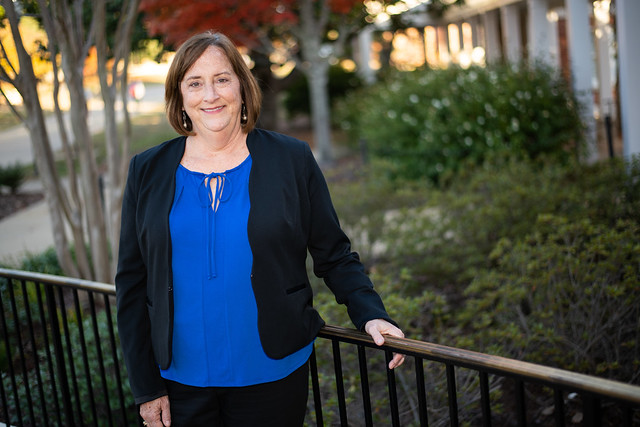Nursing professor talks options for baby formula
Article body
Parents and caregivers have been struggling for months to deal with a national shortage of baby formula. A number of factors, including workforce, transportation and raw material shortages brought on by the pandemic, have made formula hard to find. When Abbott, one of the four major formula manufacturers in the United States, recalled some of its products and closed a manufacturing plant because of possible contamination, the situation got much worse. President Joe Biden launched Operation Fly Formula, now in its third trip, to bring formula to the U.S. from Europe.
Ann Lambert, an associate clinical professor in Auburn’s College of Nursing and a pediatric nurse practitioner, offers advice on what families can do in this crisis. Lambert has degrees from Auburn University, Auburn University at Montgomery and the University of South Alabama, as well as a post-master’s certification as a pediatric nurse practitioner from the University of Alabama at Birmingham. Lambert joined the Auburn faculty in 2013 and primarily teaches maternity and pediatric nursing content.
With a shortage of baby formula, can families use an alternative such as whole milk?
If a baby is 6 months or older, whole milk is an option for a little while until the shortage improves. This is not ideal, but it can be a temporary substitute. All infant formulas contain added iron, but whole milk has very small amounts of iron. If using whole milk, babies will also need an iron supplement. I do not recommend 2%, 1% or skim milk because babies need the fat contained in whole milk to promote healthy growth.
Some families are ordering formula from overseas, but is that safe? It can’t be regulated the same as the FDA.
The U.S. produces most of the infant formula bought in the U.S. However, the U.S. has previously imported formulas from other countries. The FDA has been working to import additional infant formulas to our country. The agency specifically reviews safety testing of the formula, appropriate and complete labeling and adequacy of the nutritional value. If a foreign company can meet these standards, hopefully the supply chain will allow for more imports and a quick distribution to retailers. There has been an overall improvement in supply over the past couple of months in many places.
Can you make your own formula? Is it safe?
The American Academy of Pediatrics does not recommend making your own baby formula. This is not safe and does not provide adequate nutrition. It is also unsafe to water down formula in order to make it “last longer.” This strategy and preparing homemade formula can lead to serious health problems and possibly death.
What about donated breast milk? Is that a viable option? Is it safe? This is probably expensive, which makes it inaccessible to most Americans.
Donor breast milk is a great option. The Mothers’ Milk Bank of Alabama, located in Birmingham, collects, pasteurizes and distributes breastmilk to hospitals. It is very safe, but this milk can be quite expensive. Only a few insurance companies cover the cost of donor milk. Some of the donor banks have financial assistance programs for families who have a demonstrated need and qualify for the program. Typically, donor milk is targeted for premature and immunocompromised infants.
Some families who rely on formula have found their babies don’t tolerate different brands. What are they to do?
I agree that babies really prefer the taste of the formula they were started on. Changing to a different taste can be difficult for a baby and frustrating for the parents. It is OK to switch brands and try any available formula if the baby is not on a specialty formula. Other options we mentioned before are whole milk for babies 6 months and older and donor breastmilk. Be sure and reach out to your health care provider if you have concerns about your baby’s feedings and nutritional needs.
Media interested in talking to Lambert can contact Director of University Communications Services Preston Sparks at 334-844-9999 or preston.sparks@auburn.edu.
Auburn University is a nationally ranked land grant institution recognized for its commitment to world-class scholarship, interdisciplinary research with an elite, top-tier Carnegie R1 classification, life-changing outreach with Carnegie’s Community Engagement designation and an undergraduate education experience second to none. Auburn is home to more than 30,000 students, and its faculty and research partners collaborate to develop and deliver meaningful scholarship, science and technology-based advancements that meet pressing regional, national and global needs. Auburn’s commitment to active student engagement, professional success and public/private partnership drives a growing reputation for outreach and extension that delivers broad economic, health and societal impact.





